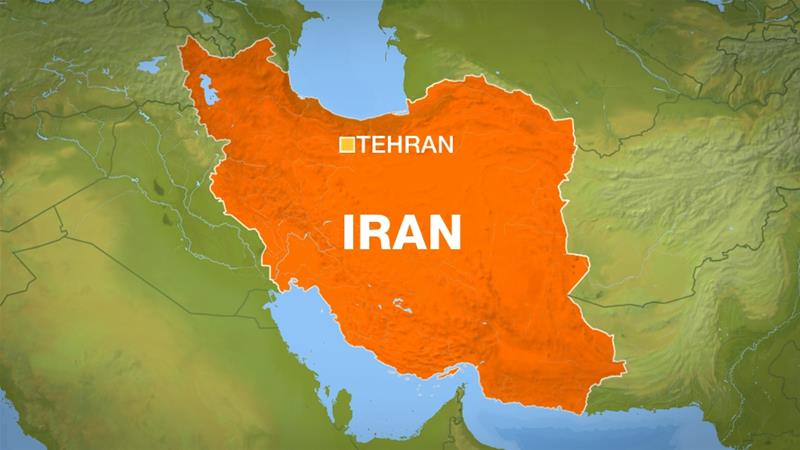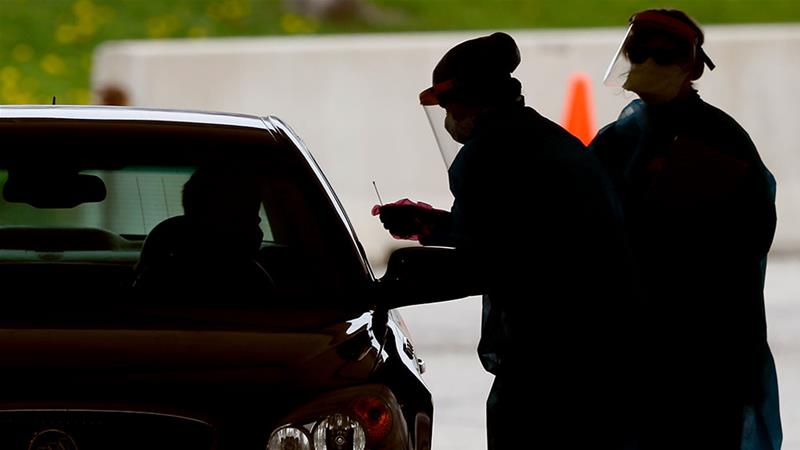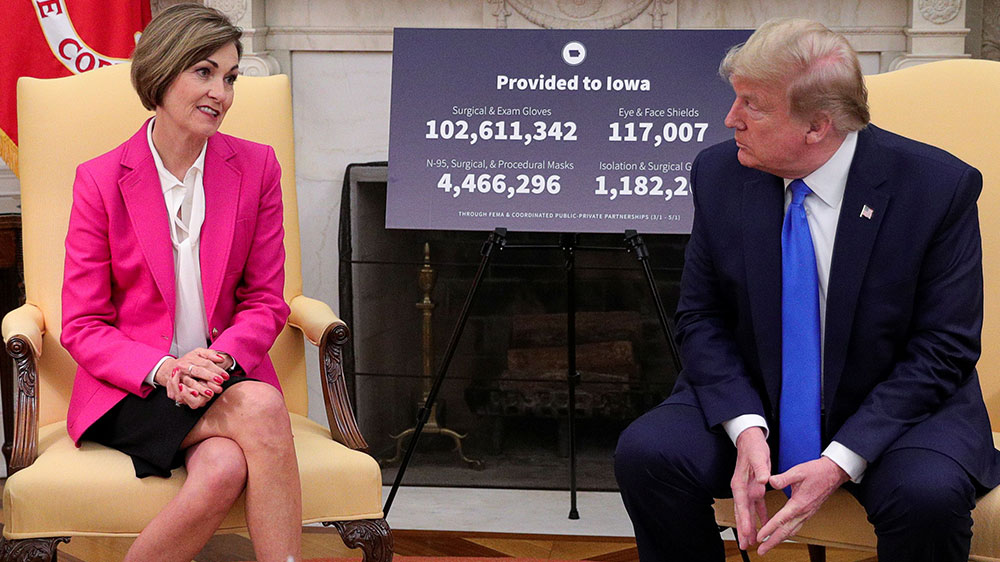
Liz Cookman
May 5, 2020
Turkey's pro-Kurdish opposition Peoples' Democratic Party says there has not been enough effort to help the Kurdish south-east

A man wearing a face shield for protective measures crosses the streets as the spread of the novel coronavirus (Covid-19) continues in the Turkish capital Ankara. AFP
Turkey’s majority Kurdish south-east is at greater risk from the global coronavirus pandemic because of government neglect, according to the country’s Kurdish opposition party.
As well as a larger concentration of testing kits, ventilators and imported drugs in the cities to the west of the country, the Peoples' Democratic Party (HDP) claim that the medical facilities in the south east are insufficient for combatting the pandemic.
The key challenges facing the region in fighting Covid-19 include high rates of poverty, poor infrastructure, distrust in the government due to widespread government crackdowns on Kurdish mayors and a language barrier.
“For Kurdish cities, the situation is much worse [than the rest of the country],” the HDP’s vice co-chair responsible for local administrations, Mr Salim Kaplan, told The National.
“The number of public hospitals in Kurdish cities, intensive care units and the number of doctors per person are quite insufficient for combatting the pandemic. Even now, all intensive care units are full in [the south-eastern city of] Batman.”
Turkey has the eighth highest number of cases in the world, with over 125,000 confirmed and more than 3,300 deaths. No up-to-date regional data is available, but the majority Kurdish south-east borders with Iran, the worst affected country in the Middle East, which has been criticised for not taking tough enough measures to stop the spread of the virus.
Many say the rate of testing in the south-east has been insufficient compared to the risk.
Mr Kaplan said that the distribution of sanitiser and masks, which have been given out for free elsewhere, is as low as 1 per cent in Kurdish regions of the country, despite the average person earning among the lowest wages.
According to the latest regional wage data from the Turkish Statistical Institute in 2018, cities in the Kurdish south east have the lowest disposable income in Turkey at under half of the national average.
Many people do not have the option of working from home and cannot afford to stop work.
“Even though Kurdish cities have the highest levels of poverty in the country, the government did not take economic measures to keep people at home,” said Mr Kaplan.
Widespread mistrust in the government has also hampered efforts to stop the spread of the pandemic, fuelled in part by the removal of elected HDP mayors from their posts by President Recep Tayyip Erdogan’s ruling Justice and Development Party (AKP).
They are detained on what are often described by rights groups as arbitrary charges under the country’s vague terrorism laws and replaced with unelected AKP trustees.
A representative of the ruling AKP declined to comment and the president’s office did not respond to correspondence.
Mehmet Demir, who was elected as co-mayor of Batman in 2019 with 66 per cent of the vote, was one of eight HDP mayors detained for several days and removed from their posts at the end of March. He was held for what the government said was suspicion of links to terrorists, in reference to the Kurdistan Workers' Party (PKK), a group that has fought an insurgency against the Turkish state for more than four decades. He disputes the accusations and says they were without justification.
Two thirds of the 59 municipalities who voted for the HDP at local elections last year have since been dismissed.
“Claims that they are giving out masks do not reflect the truth, and the fight against coronavirus seems to have turned political,” Mr Demir said in Turkish via email.
“There is no state support and people have to work. Since there are large family structures in our region there is a serious threat of the spread of the virus.
“Generally, the state's investment in the Kurdish region is security-led and disregards human life.”
Turkey’s majority Kurdish south-east is at greater risk from the global coronavirus pandemic because of government neglect, according to the country’s Kurdish opposition party.
As well as a larger concentration of testing kits, ventilators and imported drugs in the cities to the west of the country, the Peoples' Democratic Party (HDP) claim that the medical facilities in the south east are insufficient for combatting the pandemic.
The key challenges facing the region in fighting Covid-19 include high rates of poverty, poor infrastructure, distrust in the government due to widespread government crackdowns on Kurdish mayors and a language barrier.
“For Kurdish cities, the situation is much worse [than the rest of the country],” the HDP’s vice co-chair responsible for local administrations, Mr Salim Kaplan, told The National.
“The number of public hospitals in Kurdish cities, intensive care units and the number of doctors per person are quite insufficient for combatting the pandemic. Even now, all intensive care units are full in [the south-eastern city of] Batman.”
Turkey has the eighth highest number of cases in the world, with over 125,000 confirmed and more than 3,300 deaths. No up-to-date regional data is available, but the majority Kurdish south-east borders with Iran, the worst affected country in the Middle East, which has been criticised for not taking tough enough measures to stop the spread of the virus.
Many say the rate of testing in the south-east has been insufficient compared to the risk.
Mr Kaplan said that the distribution of sanitiser and masks, which have been given out for free elsewhere, is as low as 1 per cent in Kurdish regions of the country, despite the average person earning among the lowest wages.
According to the latest regional wage data from the Turkish Statistical Institute in 2018, cities in the Kurdish south east have the lowest disposable income in Turkey at under half of the national average.
Many people do not have the option of working from home and cannot afford to stop work.
“Even though Kurdish cities have the highest levels of poverty in the country, the government did not take economic measures to keep people at home,” said Mr Kaplan.
Widespread mistrust in the government has also hampered efforts to stop the spread of the pandemic, fuelled in part by the removal of elected HDP mayors from their posts by President Recep Tayyip Erdogan’s ruling Justice and Development Party (AKP).
They are detained on what are often described by rights groups as arbitrary charges under the country’s vague terrorism laws and replaced with unelected AKP trustees.
A representative of the ruling AKP declined to comment and the president’s office did not respond to correspondence.
Mehmet Demir, who was elected as co-mayor of Batman in 2019 with 66 per cent of the vote, was one of eight HDP mayors detained for several days and removed from their posts at the end of March. He was held for what the government said was suspicion of links to terrorists, in reference to the Kurdistan Workers' Party (PKK), a group that has fought an insurgency against the Turkish state for more than four decades. He disputes the accusations and says they were without justification.
Two thirds of the 59 municipalities who voted for the HDP at local elections last year have since been dismissed.
“Claims that they are giving out masks do not reflect the truth, and the fight against coronavirus seems to have turned political,” Mr Demir said in Turkish via email.
“There is no state support and people have to work. Since there are large family structures in our region there is a serious threat of the spread of the virus.
“Generally, the state's investment in the Kurdish region is security-led and disregards human life.”
Mr Kaplan said that the lack of services in Kurdish also contribute to distrust.
“Since the government has not provided services in our mother tongue, people can not properly benefit from health services. All the posters and pamphlets on coronavirus precautions are prepared in Turkish and most people do not understand. This has hampered the desired result of ensuring lockdown measures and maintaining social distancing,” he said.
Nurcan Baysal, a Kurdish journalist based in Diyarbakir, one of the largest cities in the south-east, said the government's coronavirus response in the region has been the same as in other parts of the country, aside from the prioritised key cities, such as Ankara, the capital, and Istanbul, Turkey's largest. However, the problem is that there is a greater need for support, she said.
She also said that for many Kurdish people in the area, the pandemic is just one in a long line of threats to their way of life.
“After 2015, everything became ‘one language, one nation’ again. The state changed the Kurdish names of our parks and streets. Even wedding singers who sang in Kurdish were put in prison. Not only the language, but Kurdishness was forbidden,” she said.
That year, a ceasefire between the state and the outlawed Kurdistan Workers' Party (PKK) – which is classed as a terrorist organisation by Turkey and the EU – collapsed, leading to a string of deadly attacks and intense government operations.
“Hundreds of doctors were dismissed from their jobs in Kurdish cities with the accusation of having links with ‘terrorist groups’. During the military curfews of 2015 and 2016, people witnessed terrible human rights violations and war crimes,” said Ms Baysal.
“So there is this mood now in Kurdish people: ‘we have seen terrible things, coronavirus is not so important in comparison.’”
A PRACTICE RUN FOR ERDOGAN'S FALSE FLAG COUP OF A YEAR LATER WHICH PURGED SUFI'S AND OPPOSITIONISTS WITH NO BASIS IN FACT BUT DUE TO ETHNIC AND SECTARIAN INTERESTS OF ERDOGAN ISLAMIST AGENDA AND HIS URGE TO BE THE HITLER OF TURKEY.
Updated: May 5, 2020 12:07 PM





















